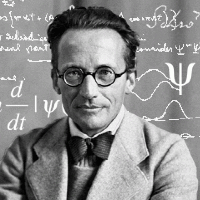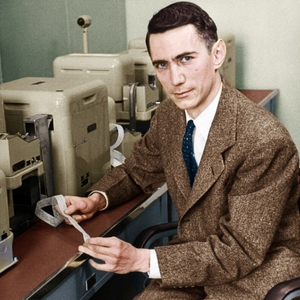B. F. Skinner tipo de personalidade mbti
Personalidade
"Que tipo de personalidade é B. F. Skinner? B. F. Skinner é um tipo de personalidade ENTP em mbti, 5w6 - so/sp - 513 em enneagram, RCOEI em Big 5, ILE em sociônicos."
A MASSIVE issue I notice when it comes to psychological figures is that people tend to type the figures based off a surface-level impression of their theories, and not the INDIVIDUAL people behind the theory. I will be sharing some quotes from his autobiography that I believe sheds insight into Skinner. ENTP Skinner vs his ESXX brother "I had a brother two and a half years younger than I. As a child I was fond of him. ... As he grew older he proved to be much better at sports and more popular than I, and he teased me for my literary and artistic interests (Sensor brother teasing Skinner for his more abstract interests). When he died suddenly of a cerebral aneurism at the age of sixteen, I was not much moved. I probably felt guilty because I was not (Aux-Ti rationalizing/trying to make sense of his own emotions in the context of Fe). I had once made an arrowhead from the top of a tin can, and when I made a test shot straight up into the air, the arrow fell back and struck my brother in the shoulder, drawing blood. I recalled the event with a shock many years later (Inf-Si?) when I heard Lawrence Olivier speaking Hamlet's lines: .... Let my disclaiming from a purpos'd evil / Free me so far in your most generous thought, / That I have shot mine arrow o'er the house, / And hurt my brother." Ne-Ti-inf Si (which can get confused for Se at times) - speaking about his childhood "I was always building things. I built roller-skate scooters, steerable wagons, sleds, and rafts to be poled about on shallow ponds. I made seesaws, merry-go-rounds, and slides. I made slingshots, bows and arrows, blow guns and water pistols from lengths of bamboo, and from a discarded water boiler a steam cannon with which I could shoot plugs of potato and carrot over the houses of our neighbors. I made tops, diabolos, model airplanes driven by twisted rubber bands, box kites, and tin propellers which could be sent high into the air with a spool-and-string spinner. I tried again and again to make a glider in which I myself might fly. I invented things, some of them in the spirit of the outrageous contraptions in the cartoons which Rube Goldberg was publishing in the Philadelphia Inquirer (to which, as a good Republican, my father subscribed) (Ti reasoning of his father's perceived Fe). For example, a friend and I used to gather elderberries and sell them from door to door, and I built a flotation system which separated ripe from green berries. I worked for years on the design of a perpetual motion machine. (It did not work.)" Ne-Ti "I liked school. It was the custom for students to congregate outside the building until a bell rang and the doors were opened. I was a constant problem for the janitor, because I would arrive early and ask to be let in. He had been told to keep me out, but he would shrug, open the door just enough to let me through, and lock it after me. ... I was always doing physical and chemical experiments at home." Devil's advocate (Ne-Ti-Fe): "I think it was in the eighth grade that we were reading As You Like It. One evening my father happened to say that some people believed that the plays were not written by Shakespeare but by a man named Bacon. The next day I announced to the class that Shakespeare had not actually written the play we were reading. "You don't know what you are talking about," said Miss Graves. That afternoon I went down to the public library and drew out Edwin Durning-Lawrence's Bacon is Shakespeare (1910). The next day I did know what I was talking about, and I must have made life miserable for Miss Graves for the next month or two." More Aux/dom Ti rationalization of emotion "I was miserably unhappy. Suddenly it occurred to me that happiness and unhappiness must cancel out and that if I were unhappy now I would necessarily be happy later. I was tremendously relieved. The principle came with the force of a revelation." Ne exploration + Inf-Si + refusing to comply with something that doesn't make sense to his Ti "I joined a fraternity without knowing what it was all about. I was not good at sports and suffered acutely as my shins were cracked in ice hockey or better players bounced basketballs off my cranium-all in the name of what was ironically called "physical education." In a paper I wrote at the end of my freshman year, I complained that the college was pushing me around with unnecessary requirements (one of them daily chapel) and that almost no intellectual interest was shown. By my senior year I was in open revolt." Skinner's humor (Ne-Ti humor) "My Grandmother Skinner was an uneducated farmer's daughter who put on airs. She was naturally attracted to a young Englishman who came to America in the early 1870's looking for work, and she married him. (He had not found just the work he wanted when he died at the age of ninety.)"
Biografia
Burrhus Frederic Skinner (March 20, 1904 – August 18, 1990), commonly known as B. F. Skinner, was an American psychologist, behaviorist, author, inventor, and social philosopher. He was the Edgar Pierce Professor of Psychology at Harvard University from 1958 until his retirement in 1974.Skinner considered free will an illusion and human action dependent on consequences of previous actions. If the consequences are bad, there is a high chance the action will not be repeated; if the consequences are good, the probability of the action being repeated becomes stronger. Skinner called this the principle of reinforcement. To strengthen behavior, Skinner used operant conditioning, and he considered the rate of response to be the most effective measure of response strength.
Personalidades relacionadas
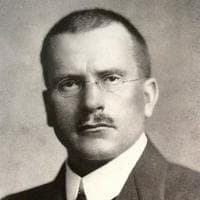
Carl Jung

Jordan Peterson
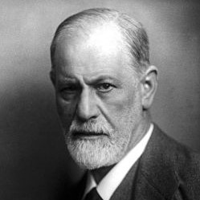
Sigmund Freud
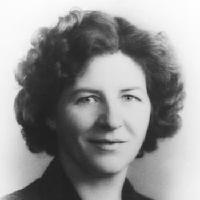
Isabel Briggs Myers

Claudio Naranjo

Andrew Huberman

Katherine Fauvre

Viktor Frankl


